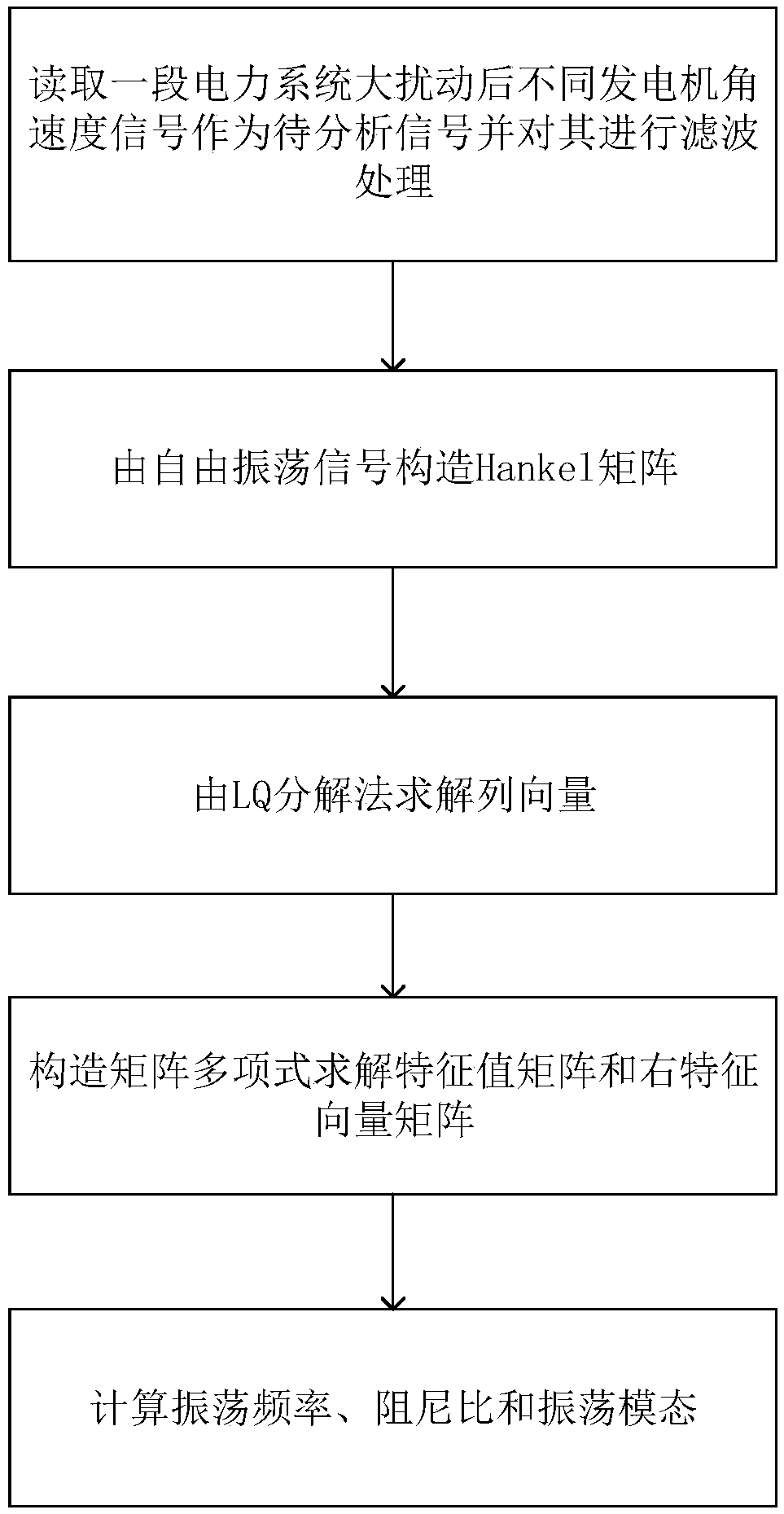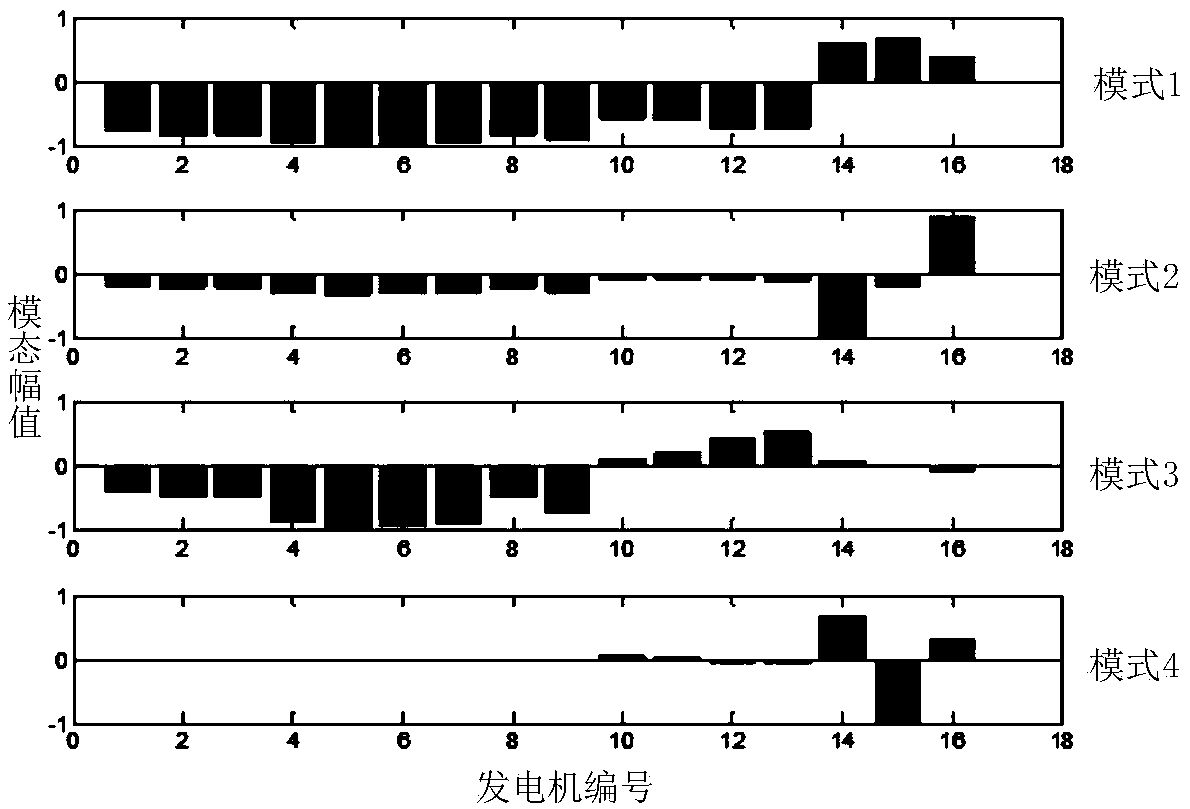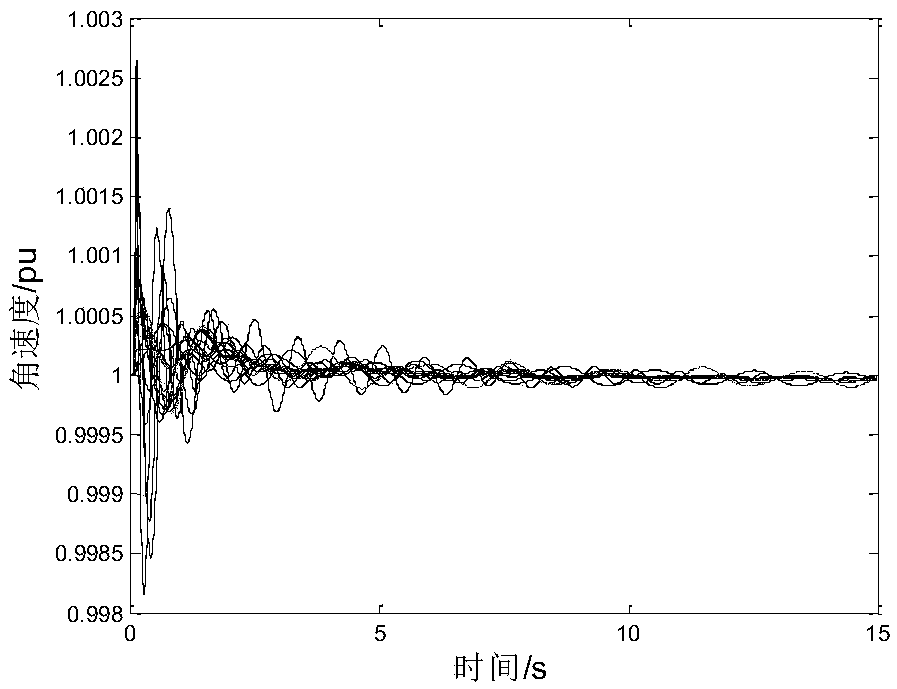A prce-based online identification method for low-frequency oscillation modes
A technology of low frequency oscillation and identification method, applied in the direction of instruments, measuring devices, measuring electricity, etc., can solve the problems of poor noise resistance, low identification accuracy, inability to calculate the oscillation mode, etc., to improve the identification accuracy and stability, and the identification accuracy. accurate effect
- Summary
- Abstract
- Description
- Claims
- Application Information
AI Technical Summary
Problems solved by technology
Method used
Image
Examples
Embodiment
[0058] In the embodiment, a PRCE method-based power system low-frequency oscillation mode identification method is provided, refer to figure 1 , the method includes the following steps:
[0059] Step 1: Read the power angle or angular velocity free oscillation signal x of m generators after a power system disturbance:
[0060] x=[x(1),x(2),...,x(r)]
[0061] Among them, x(i) represents the i-th measurement data of m generators, i=1,2,...,r, r is the length of the free oscillation signal taken,
[0062] Step 2: Construct the extended Hankel matrix H using the free oscillation signal
[0063] Use the data in the free-oscillating signal x described in step 1 to construct the extended Hankel matrix H:
[0064]
[0065] Among them, x(i) represents the i-th measurement data of m generators, i=1,2,...,r, r is the length of the free oscillation signal taken, p e is the order of the signal model;
[0066] Step 3: Calculate the order p of the signal model using the singular valu...
PUM
 Login to View More
Login to View More Abstract
Description
Claims
Application Information
 Login to View More
Login to View More - R&D
- Intellectual Property
- Life Sciences
- Materials
- Tech Scout
- Unparalleled Data Quality
- Higher Quality Content
- 60% Fewer Hallucinations
Browse by: Latest US Patents, China's latest patents, Technical Efficacy Thesaurus, Application Domain, Technology Topic, Popular Technical Reports.
© 2025 PatSnap. All rights reserved.Legal|Privacy policy|Modern Slavery Act Transparency Statement|Sitemap|About US| Contact US: help@patsnap.com



